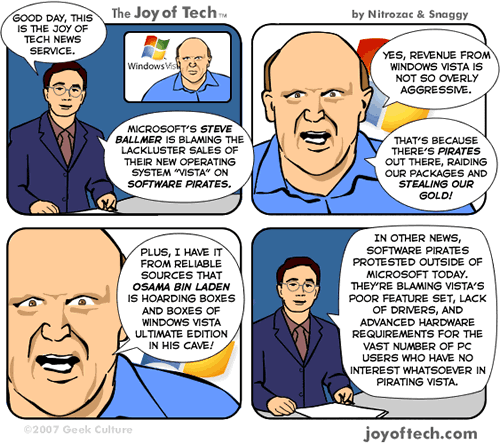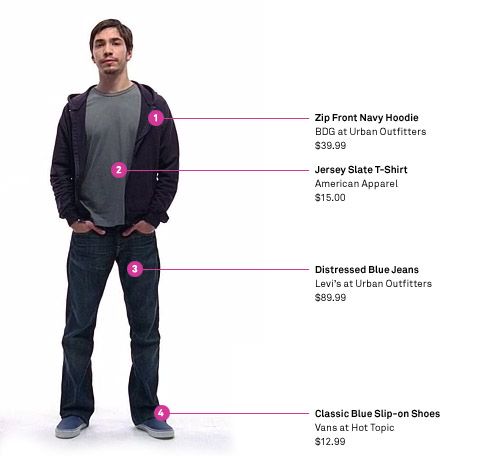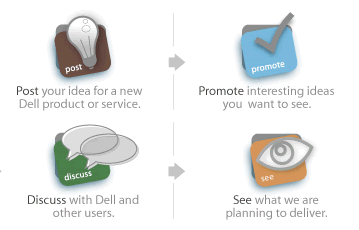Gentle readers, before I begin, let me show you the scariest photo I’ve seen all month. I found it while doing an image search for Eric S. Raymond for a photo to go along with this article:

I’ll give you a moment to wipe the coffee off your screen before continuing.
Better now? Good.
Anyhow: Open Source thought leader (and author of many books and articles, including The Cathedral and the Bazaar and Sex Tips for Geeks) and gun nut firearms enthusiast Eric S. Raymond has publicly given up on the Fedora Linux distribution after thirteen years of being a Red Hat, and later, Fedora supporter. His reasons:
Over the last five years, I’ve watched Red Hat/Fedora throw away what was at one time a near-unassailable lead in technical prowess, market share and community prestige. The blunders have been legion on both technical and political levels. They have included, but were not limited to:
- Chronic governance problems.
- Persistent failure to maintain key repositories in a sane, consistent state from which upgrades might actually be possible.
- A murky, poorly-documented, over-complex submission process.
- Allowing RPM development to drift and stagnate — then adding another layer of complexity, bugs, and wretched performance with yum.
- Effectively abandoning the struggle for desktop market share.
- Failure to address the problem of proprietary multimedia formats with any attitude other than blank denial.
In retrospect, I should probably have cut my losses years ago. But I had so much history with Red-Hat/Fedora, and had invested so much effort in trying to fix the problems, that it was hard to even imagine breaking away.
If I thought the state of Fedora were actually improving, I might hang in there. But it isn’t. I’ve been on the fedora-devel list for years, and the trend is clear. The culture of the project’s core group has become steadily more unhealthy, more inward-looking, more insistent on narrow “free software” ideological purity, and more disconnected from the technical and evangelical challenges that must be met to make Linux a world-changing success that liberates a majority of computer users.
I’ve always preferred Raymond’s “Open Source” pragmatism over the ideological purity of the “Stalliban” (my pet name for the more stringent ideologues at the Free Software Foundation).
I myself was a Red Hat user back around 2000, when the cooler nerds were already beginning to don “Fuck Red Hat” stickers, but moved to Mandrake and then Ubuntu long ago for about the same reasons as Raymond: because I didn’t want to go through all the “yak-shaving” that other distributions like Debian, and now Red Hat require. My current desktop Linux distro, Ubuntu (I’m using the “Dapper Drake”; Raymond’s using the newer “Edgy Eft” version), is considerably easier to install, maintain, update and find help for than any other distro — so much easier that in terms of my own usage, it’s vying for the number 2 spot against Windows (OS X remains the OS I use the most).
I see that Raymond had the same surprisingly pleasant installation experience as I did:
This afternoon, I installed Edgy Eft on my main development machine — from one CD, not five. In less than three hours’ work I was able to recreate the key features of my day-to-day toolkit. The after-installation mass upgrade to current packages, always a frightening prospect under Fedora, went off without a hitch.
Welcome to club Ubuntu, Eric! Hope you like it as much as I do.






